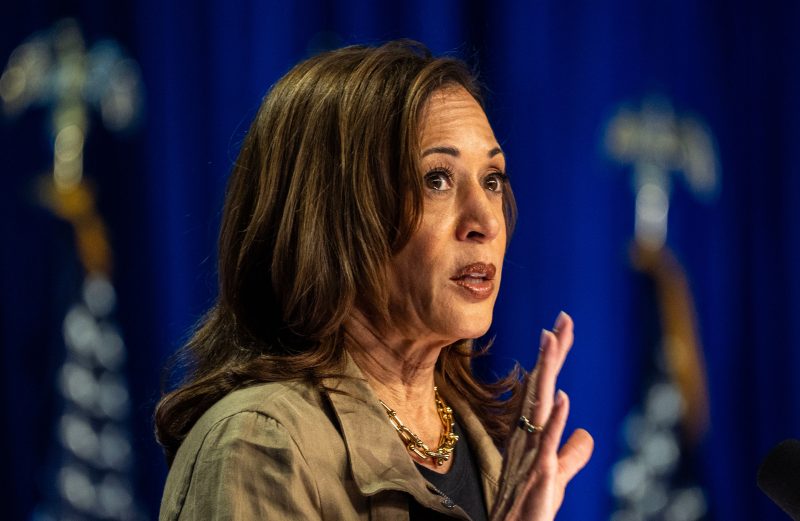The stark contrast between Vice President Kamala Harris and former President Donald Trump on economic and border policies will undoubtedly have far-reaching implications for the trajectory of the nation. Harris, representing the current administration, has advocated for a more progressive approach to tackling economic disparities and border issues. Conversely, Trump’s aggressive stance on these matters during his tenure as president has left a lasting imprint on the national discourse. As these two significant figures stand at opposite ends of the spectrum, their policy differences underscore a broader ideological divide that will significantly impact vital policy decisions in the coming years.
Economic Policy
Vice President Harris has championed economic policies focused on revitalizing the middle class, promoting equitable growth, and narrowing income inequality. Her support for initiatives such as raising the minimum wage, expanding access to affordable healthcare, and investing in infrastructure underscores a commitment to creating a more inclusive economy. Harris’s approach emphasizes the importance of addressing systemic barriers that hinder economic mobility and opportunity for all Americans.
Conversely, former President Trump adopted a more protectionist economic policy agenda characterized by trade tariffs and tax cuts for corporations and the wealthy. His America First mantra resonated with a segment of the population concerned about job losses and economic uncertainty. However, critics argued that Trump’s policies favored the wealthy at the expense of working-class Americans and exacerbated income inequality.
Border Policy
The issue of border security remains a contentious topic in American politics, with both Harris and Trump offering starkly different perspectives. Vice President Harris has emphasized a more compassionate and holistic approach to immigration, calling for comprehensive immigration reform and addressing the root causes of migration. Her focus on human rights and creating a pathway to citizenship for undocumented immigrants reflects a commitment to upholding America’s values as a nation of immigrants.
In contrast, former President Trump centered his border policy on strict enforcement measures, including building a border wall and implementing a series of travel bans. His administration’s zero-tolerance policy towards undocumented immigrants led to widespread criticism and condemnation from human rights organizations. Trump’s hardline stance on immigration inflamed tensions and sparked debates about the moral and ethical implications of his policies.
Future Implications
The contrasting economic and border policies of Vice President Harris and former President Trump highlight the divergent paths that the nation could take in the coming years. As debates over economic stimulus packages, tax reform, and immigration policies continue to shape the political landscape, the ideological differences between the current administration and its predecessor will play a crucial role in determining the direction of the country.
Ultimately, the choices made regarding economic and border policies will have profound implications for all Americans, particularly those most impacted by systemic inequities and immigration challenges. As Vice President Harris and former President Trump represent contrasting visions for the nation’s future, their policy differences will serve as a litmus test for the values and priorities that guide policymaking in the United States.
